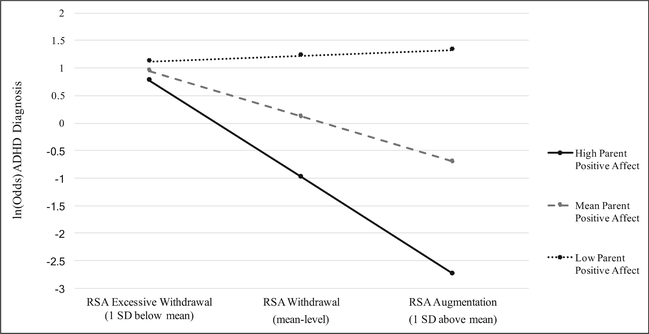Fig. 1.
Interaction between parent positive affect and child RSA reactivity in predicting the likelihood of child ADHD diagnosis, when averaging across the parent-child interaction tasks. Note: Odds of an ADHD diagnosis are greatest for those experiencing excessive RSA withdrawal across the task conditions; however, for children with parents displaying low positive affect, augmented RSA was associated with greater odds of being in the ADHD group. For children whose parents offer high positive affect, RSA augmentation was associated with the lowest odds of being in the ADHD group (z = −2.27, b = −0.46, p = 0.03). Of note, results are presented based on the mean and ± 1 SD for illustrative purposes only. Continuous measures of parent affect and respiratory sinus arrhythmia were utilized in all analyses

